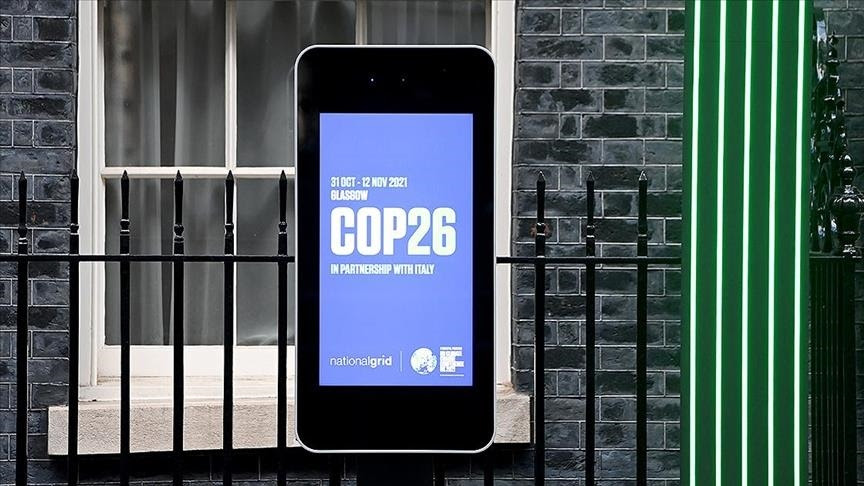Today, an agreement was signed at the COP 26, it is the pact of Glasgow, it aims to go faster for the fight against climate change. It is considered a failure.
More than days late and after two weeks of trying negotiations, the representatives of 200 nations present at the COP 26 gave birth this Saturday evening to an agreement. This “pact of Glasgow” is intended to accelerate the fight against global warming, but without ensuring to contain it to 1.5 ° C nor to answer the requests for help of the poor countries. Many already consider this text as a failure.
All parties present were unable to reach agreement on the main sticking points, such as the phasing out of coal, fossil fuel subsidies and financial support for low-income countries. The final adoption of the text finally came after last-minute changes introduced by China and India on the issue of fossil fuels. The President of the COP 26 said with tears in his eyes that he was “deeply sorry” about these changes. He had earlier estimated that the agreement “inaugurates a decade of growing ambition” in climate matters.
Even a country like India proposed a last-minute change on Saturday in the term used for fossil fuels in the pact, from a “phase-out” of coal to a “phase-down”. “Developing countries have a right to their fair share of the global carbon budget and to responsible use of fossil fuels,” the Indian representative said. “How can developing countries be expected to make promises on phasing out coal and fossil fuel subsidies?” he also questioned.
Faced with this wall of refusal from India and China, the opposing countries finally relented. The final version calls for “intensifying efforts towards the reduction of coal without (CO2) capture systems and the exit from inefficient fossil fuel subsidies”.
Moreover, on the key point of limiting temperatures, while the planet is, according to the UN, on a “catastrophic” trajectory of warming of 2.7 ° C compared to the pre-industrial era, the text calls on member states to raise their commitments to reductions more regularly than provided for in the Paris Agreement, and this from 2022. But with the possibility of adjustments for “special national circumstances”, a point that has raised criticism from NGOs on the real ambitions of the text.
This agreement does not ensure compliance with the objectives of the Paris Agreement, limiting warming “well below” 2 ° C and if possible to 1.5 ° C. It does, however, offer prospects for the British presidency to claim success on its goal of seeing Glasgow “keep 1.5 alive.” Experts regularly warn that “every tenth of a degree counts” while disasters related to climate change are already multiplying: floods, droughts or heat waves, with their trail of damage and victims.
The major discussion of aid to poor countries, which for a time seemed to derail the negotiations, did not find a resolution.
Very disappointed by the still unfulfilled promise of the richest countries to increase their climate aid to the South to 100 billion dollars per year from 2020, the poor countries, the least responsible for global warming but in the front line of its impacts, asked for a specific financing of the “losses and damages” they are already suffering. But developed countries, led by the United States, who fear possible legal consequences, were firmly opposed. Reluctantly, the poor countries gave in, agreeing to a continuation of the dialogue in order not to lose progress on the fight against global warming, the effects of which already threaten them directly. While saying they were “extremely disappointed”.
Boris Johnson, considered this Saturday evening that the Pact was “a great step forward”, it is, for Teresa Anderson, of the NGO ActionAid International, that “an insult to the millions of people whose lives are ravaged by the climate crisis”.
The muse of the global youth climate movement, Greta Thunberg, was no more tender, denouncing on Twitter “a tsunami of greenwashing” to try to pass off this Glasgow Pact as “a step in the right direction”.
“It’s soft, it’s weak, and the 1.5°C goal is barely alive, but there is a signal about the end of the coal era. And that’s important,” said Jennifer Morgan, head of Greenpeace International. The European Union also remains positive, believing that the COP 26 “keeps the objectives of the Paris Agreement alive”.
The United Nations Secretary General called the agreement a “compromise” full of “contradictions”. “Climate catastrophe is still knocking on the door,” he said.



Comment here